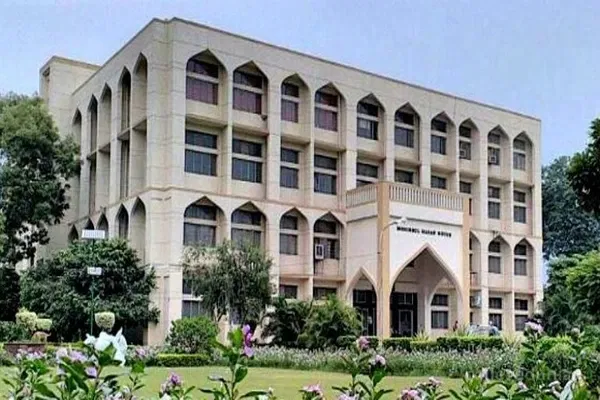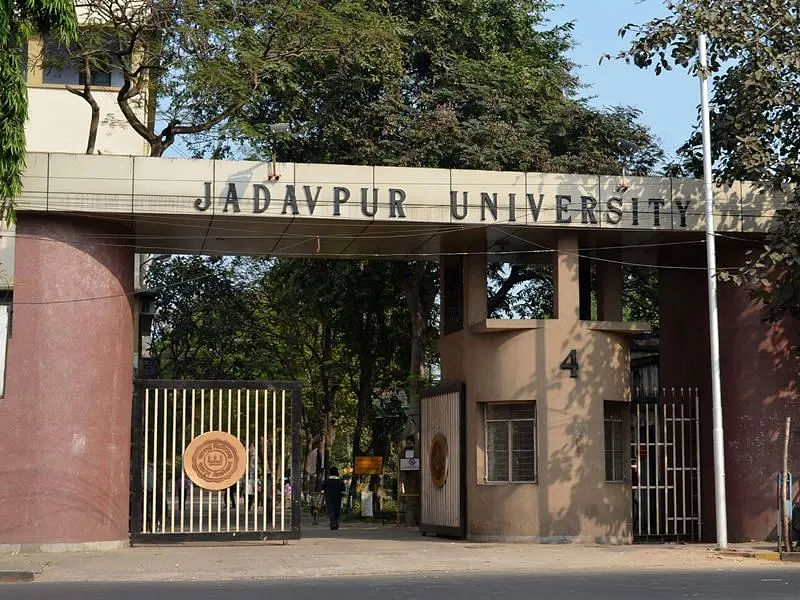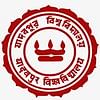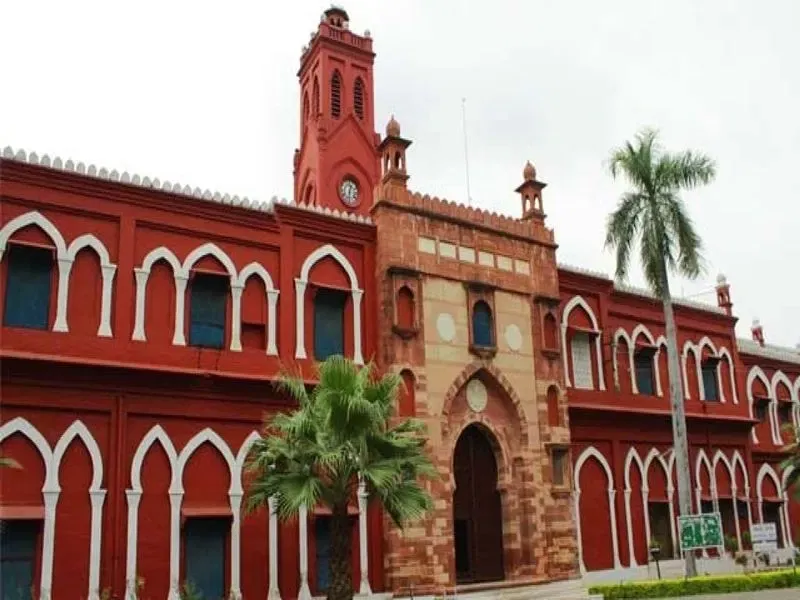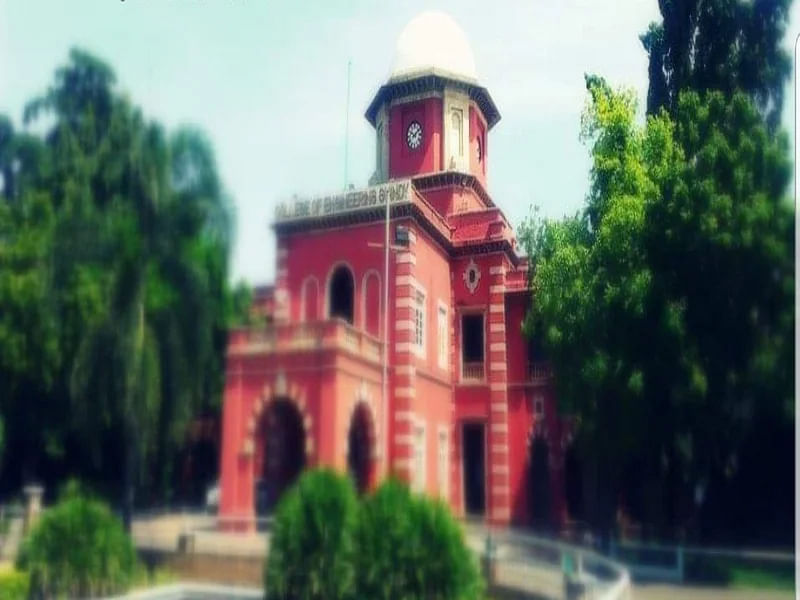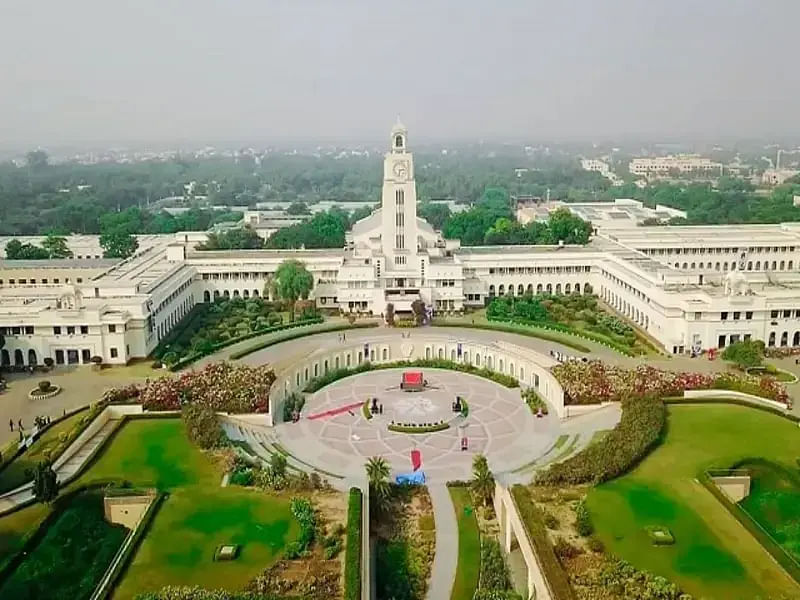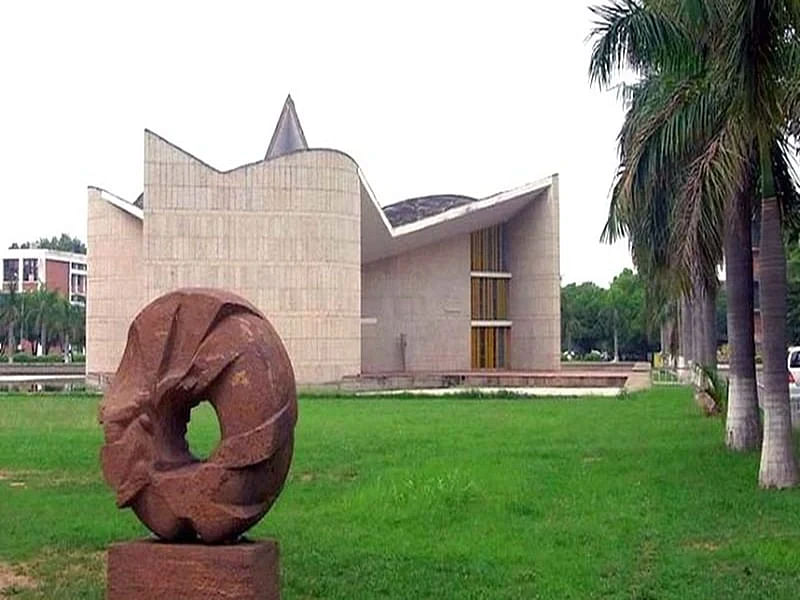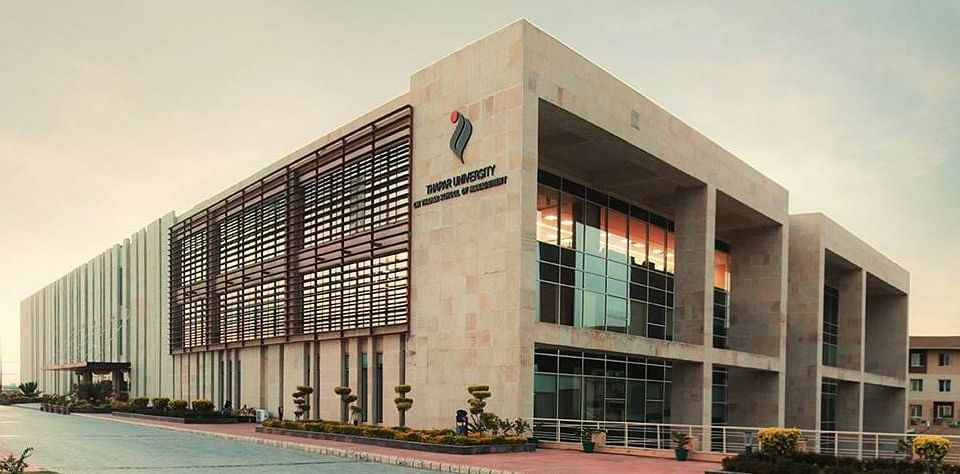BE Civil Engineering Syllabus and Subjects

The BE Civil Engineering syllabus covers major topics such as Structural engineering, Construction engineering, Geotechnical Engineering, etc. BE Civil Engineering subjects include the study of Engineering Physics, Chemistry, Mathematics, and other engineering-based disciplines to enable students gain adequate knowledge and foundation in civil engineering.
BE Civil Engineering syllabus provides industry-relevant expertise. As a result, the BE Civil Engineering job scope is extensive across public and private sectors. BE Civil Engineering course covers both core and elective subjects including field visits, internship, final research projects and workshop. Students can also choose a particular subject during the final year including Environmental Engineering, Geotechnical Engineering, Water Resources Engineering, Structural Engineering, etc and can specialise in the specific field.
BE Civil Engineering Semester Wise Syllabus
The BE Civil Engineering syllabus provides a scientific understanding of the planning, construction, and supervision of natural and manmade environments. The syllabus of BE Civil Engineering extends across many technical specialties. Here is the BE Civil Engineering subjects list all semester.
BE Civil Engineering subjects 1st year
The BE Civil Engineering subjects 1st-year focus on several foundational aspects of civil engineering including engineering mathematics, statistics, engineering physics, etc. The BE Civil Engineering 1st year subjects are given below:
|
Semester I |
Semester II |
|
Engineering Mathematics-I |
Statistics and Numerical Methods |
|
Engineering Physics |
Engineering Chemistry |
|
Basic Electrical Engineering / Basic Electronics Engineering |
Physics for Civil Engineering |
|
Computer Programming |
Engineering Mechanics |
| Energy and Environment Engineering |
Engineering Graphics (Engineering Drawing) |
Practical Topics in the BE Civil Engineering subjects 1st year
There are several practical coursework under the 1st year civil engineering subjects. The practical topics in the BE Civil Engineering subjects 1st year are given below:
- To learn the proper use of various kinds of physics laboratory equipment
- Tests on: Cement, fine aggregates, coarse aggregates
- Preparing plumbing line sketches
- Studying common industrial trusses using models
BE Civil Engineering subjects 2nd year
BE Civil Engineering 2nd year subjects includes engineering mechanics, concrete technology, fluid mechanics, applied hydraulics, etc. The second-year BE Civil Engineering subjects are given below:
|
Semester III |
Semester IV |
|
Engineering Mechanics |
Applied Hydraulics Engineering |
|
Surveying and Levelling |
Concrete Technology |
|
Fluid Mechanics |
Reinforced Concrete Design |
|
Water Supply and Waste Water Engineering |
Solid Mechanics |
|
Disaster Management |
Construction Materials and Technology |
Practical Topics in the 2nd year BE Civil Engineering Syllabus
The practical subjects in 2nd year BE Civil Engineering syllabus are given below:
- Study of emergency lamp wiring
- Demonstrating basic foundry operations
- Assembling and testing electronic components on a small PCB
- Load test on Single Phase Transformer
BE Civil Engineering subjects 3rd year
BE Civil Engineering 3rd year covers foundation engineering, engineering geology, steel structures, irrigation engineering, etc. The third-year BE Civil Engineering syllabus is given below:
|
Semester V |
Semester VI |
|
Structural Elements / Structural Analysis |
Advanced Structural Analysis |
|
Foundation Engineering |
Engineering Geology |
|
Steel Structures Design |
Reinforced Concrete Design |
|
Geotechnical Engineering |
Soil Mechanics |
|
Irrigation Engineering |
Transportation Engineering |
|
Electives |
Electives |
Practical Topics in the 3rd year BE Civil Engineering syllabus
The practical subjects in the 2nd-year syllabus of civil engineering are given below:
- Specific gravity determination of the bitumen/asphalt sample
- Reinforcement details of RCC structural elements
- Design short columns for axial, uni-axial, and bi-axial eccentric loadings
- Conduct tests to determine the index properties of soils
BE Civil Engineering subjects 4th year
BE Civil Engineering 4th year syllabus covers subjects such as dams and hydraulic structure, maintenance of building and any elective subject of their choice. The following is the 4th year BE civil engineering subjects list:
|
Semester VII |
Semester VIII |
|
Seismic Analysis & Design |
Dams and Hydraulic Structures |
|
Advance Transportation Engineering |
Quantity Surveying, Contracts, and Tenders |
|
Maintenance of Buildings |
Advanced Environmental Engineering |
|
Electives |
Electives |
Practical Topics in the 4th BE Civil Engineering syllabus
The practical subjects in 2year syllabus of civil engineering are given below:
- Development of a contract document for the infrastructure project
- Evaluate pavement and learn the concept of pavement maintenance management system
- Evaluation of pavement roughness by Bump Integrator
- Perform some basic tests on the vibration of the helical spring
Note: This is a general structure of BE Civil syllabus. Students can know more about the course curriculum by accessing the BE Civil Engineering subjects list all semester PDF through college websites.
BE Civil Engineering Subjects
The BE Civil Engineering subjects are designed to improve the knowledge of civil engineering and a better understanding of the concepts related to it such as Building Materials, Construction Technology, Geotechnical Engineering, Structural Engineering, etc. The following is the BE Civil Engineering Subject list consisting of core and elective topics:
BE Civil Engineering Core Subjects
There are both core and elective subjects available in the curriculum. Some of the core subjects in the syllabus of civil engineering are given below:
- Systems in Mechanical Engineering
- Engineering Graphics
- Fluid Mechanics
- Engineering Graphics
- Structural Analysis
- Concrete Technology
- Infrastructure Engineering and Construction Techniques
BE Civil Engineering Elective Subjects
Some of the elective subjects in the BE Civil Engineering syllabus are given below :
- Quality Engineering
- Bridge engineering
- Space Engineering
- Mechatronics
- Hydropower Engineering
- Nano Technology
- Micro and Precision Engineering
BE Civil Engineering subjects in Detail
The subjects in the syllabus of civil engineering are broad and cover various aspects of civil engineering. A detailed view of the BE Civil Engineering subjects is given below:
|
BE Civil Engineering subjects |
Topics Covered |
|
Foundation Engineering |
Subsurface Investigations for Foundations, Bearing Capacity, Immediate and Consolidation Settlement, Pile Foundations |
|
Coastal Engineering |
Basics of Ocean Waves, Wave Properties and Analysis, Coastal Structures and Shore Protection, Coastal Management |
|
Airport and Bridge Engineering |
Introduction and Classification of Airport, Aircraft Characterizes and Geometric design, Airport Marking and Lighting- Heliports |
|
Earthquake Engineering |
Earthquake and Seismology, Vibration Analysis: SDOF Systems, Seismic Analysis: Static Approach, Seismic Design |
|
Dams and Hydraulics Structures |
Gravity Dam, Spillway, Earthen dam, Diversion head works, Canals |
|
Hydropower Engineering |
Hydropower Plants & Its Classification, Energy Resources and Load Assessment, Power and Energy Potential Study |
BE Civil Engineering Course Structure
The course includes realistic lab classes to improve the understanding of theoretical concepts. Projects, seminars, field trips, and workshops are considered among the important components of the course structure. The general course structure is as follows:
- VIII Semesters
- Core Subjects
- Elective Subjects
- Practical Workshops
- Internship
- Workshop
- Seminar
- Field Trip
- Project/ Thesis Submission
College-Wise BE Civil Engineering Syllabus
The BE Civil Engineering syllabus varies from one college to another but the structure and the concepts remains the same. To download a particular college syllabus, students can visit the college official website and download the BE Civil Engineering Syllabus PDF. Given below are the BE Civil Engineering Syllabus from top colleges and universities in India:
Anna University BE Civil Engineering Syllabus
The BE Civil Engineering syllabus in Anna University focuses on the core subjects and elective subjects such as Engineering Physics, Engineering chemistry, Calculus, Fluid Mechanics, Communication, etc. Listed below are the semester-wise BE Civil Engineering syllabus in Anna University:
|
Semester-I |
Semester-II |
|
Professional English-I |
Professional English-II |
|
Matrices and Calculus |
Statistics and Numerical Methods |
|
Engineering Physics |
Physics for Civil Engineering |
|
Engineering Chemistry |
Basic Electrical, Electronics and Instrumentation Engineering |
|
Problem Solving and Python Programming |
Engineering Graphics |
|
Problem Solving and Python Programming Laboratory |
Engineering Practices Laboratory |
|
English Laboratory |
Basic Electrical, Electronics and Instrumentation Engineering Laboratory |
|
Physics and Chemistry Laboratory |
Communication Laboratory/ Foreign Language |
|
Semester-III |
Semester-IV |
|
Transforms and Partial Differential Equations |
Applied Hydraulics Engineering |
|
Engineering Mechanics |
Strength of Materials |
|
Fluid Mechanics |
Concrete Technology |
|
Surveying and Levelling |
Soil Mechanics |
|
Construction Material and Technology |
Highway and Railway Engineering |
|
Water Supply and Waste Water Engineering |
Environmental Sciences and Sustainability |
|
Surveying and Levelling Laboratory |
Hydraulic Engineering Laboratory |
|
Water and Waste Water Analysis Laboratory |
Soil Mechanics Laboratory |
|
Professional Development |
Material Testing Laboratory |
|
Semester-V |
Semester-VI |
|
Design of Reinforced Concrete Structural Elements |
Design of Steel Structural Elements |
|
Structural Analysis-I |
Structural Analysis-II |
|
Foundation Engineering |
Engineering Geology |
|
Professional Elective-I |
Professional Elective-IV |
|
Professional Elective-II |
Professional Elective-V |
|
Professional Elective-III |
Professional Elective-VI |
|
Highway Engineering Laboratory |
Building Drawing and Detailing Laboratory |
|
Semester-VII |
Semester-VIII |
|
Estimation, Costing and Valuation Engineering |
Project Work |
|
Hydrology and Water Resources Engineering |
Internship |
|
Human Values and Ethics |
- |
|
Total Quality Management |
- |
|
Open Elective-II |
- |
|
Open Elective-III |
- |
|
Open Elective-IV |
- |
Sikkim University BE Civil Engineering Syllabus
BE Civil Engineering Syllabus in Sikkim University focuses on theory and practical subjects such as Elements of Civil Engineering, Engineering Mathematics, Engineering Physics Laboratory, Mechanics of Solids, etc with internship and project work during the final semester, Listed below are the the semester-wise BE Civil Engineering syllabus at Sikkhim University:
|
Semester-I |
Semester-II |
|
Engineering Mathematics-I |
Engineering Mathematics-II |
|
Elements of Mechanical Engineering |
Basic Electronics |
|
Communication English |
Mechanics of Solids |
|
Engineering Physics |
Engineering Chemistry |
|
Engineering Physics Laboratory |
Problem Solving using Computers |
|
Electrical Engineering Laboratory |
Universal Human Values and Professional Ethics |
|
Workshop Practices |
Engineering Chemistry Laboratory |
|
Environmental Studies |
Programming Laboratory |
|
- |
Engineering Graphics and Design |
|
Semester-III |
Semester-IV |
|
Engineering Mathematics-III |
Engineering Mathematics-IV |
|
Strength of Mechanics |
Structural Analysis |
|
Fluid Mechanics-I |
Surveying-II |
|
Transportation Engineering-I |
Civil Engineering Materials and Concrete Technology |
|
Surveying-I |
Fluid Mechanics-II |
|
Disaster Management-I |
Open Elective-I |
|
Building Drawing using AutoCAD |
Fluid Mechanics Lab |
|
Material Testing Lab-I |
Material Testing Lab-II |
|
Surveying Practice-I |
Surveying Practice-II |
|
Semester-V |
Semester-VI |
|
Engineering Economics |
Transportation Engineering-II |
|
Geotechnical Engineering -I |
Geotechnical Engineering-II |
|
Designing of RC Structure |
Design of Steel Structures |
|
Engineering Hydrology |
Estimation, Costing and Evaluation |
|
Environmental Engineering |
Programme Elective-II |
|
Programme Elective-I |
Estimation and Costing Practice |
|
Environmental Engineering Lab |
Computer Aided Structural Analysis and Design Lab |
|
Geotechnical Engineering Lab |
Industrial Training/Seminar |
|
Semester-VII |
Semester-VIII |
|
Construction Planning, Organization and Equipment |
Major Project Work |
|
Programme Elective-III |
Internship |
|
Programme Elective-IV |
- |
|
Programme Elective-V |
- |
|
Open Elective-II |
- |
|
Structural Design and Drawing Lab |
- |
|
Remote Sensing and GIS Lab |
- |
|
Mini Project Work |
- |
BE Civil Engineering Teaching Methodology and Techniques
The teaching practice of the BE Civil Engineering program consists of lectures and laboratory practicals, skill development, and exposure to teamwork. The multidisciplinary approach can be seen to be covered under the BE Civil Engineering subjects 1st year. Listed below are the standard teaching methodology and strategies in general:
- Group Projects
- Conceptualized Learning
- Traditional Classroom-Based Teaching
- Practical Lab Sessions
- Talks from guest speakers
- Seminars
- Semester Abroad Opportunities
BE Civil Engineering Projects
The BE Civil Engineering Projects are a must for every student when they enter their final year. The project submission helps students to gain hands-on experience along with knowledge gained through industrial visits. Some of the popular BE project topics in Civil Engineering are:
- Geographic Information System using Q-GIS
- Structural and Foundation Analysis
- Construction Project Management & Building Information Modeling
- Tall Building Design.
BE Civil Engineering Reference Books
The BE Civil Engineering books are present both online and offline, enabling students to study deeper into the concepts or the topics available in the syllabus. Students can know more information about core books by accessing BE Civil Engineering syllabus PDF through the college website. Some popular books based on civil engineering by famous authors are given below:
|
BE Civil Engineering Reference Books |
Author Name |
Topics Covered |
|
Soil Mechanics & Foundation Engineering. |
R.F.Craig, Muni Budhu |
Physical characteristics such as grain size, water content, and void ratio of soil, classification of Soil, Compaction of Soil, Concept of Effective Stress |
|
Environmental Engineering |
G.O.I Manual, S.K. Garg |
Introduction to ,water demands sources of water, hydrological concepts and study of surface sources, development of ground water intakes for collecting surface water, conduits for transporting water pumps for lifting water quality control of municipal and industrial water supplies, purification of water supplies |
|
Fluid Mechanics and Fluid Machines |
Modi & Seth, R. K. Bansal, Cengel and Cimbala, K.Subramanyam, Jagdish Lal. |
Concepts of Fluid Mechanics & Hydraulics With Computer Applications |
|
Highway Engineering |
Khanna & Justo, Kadiyali |
Importance of Transportation, Highway development and Planning, Highway Alignment and Surveys, Highway Geometric Design |
|
Railway Engineering |
Saxena & Arora |
Rail Transportation and Engineering, Railway Terminologies, Stresses in Railway Track, Subgrade and Embankments |
Top BE Civil Engineering Colleges
Top Engineering Entrance Exams
BE Civil Engineering Fee Structure
FAQs on BE Civil Engineering Syllabus and Subjects
Q: What is the 1st year syllabus of BE Civil Engineering?
Q: What are the core subjects of BE Civil Engineering?
Q: What are the elective subjects in BE Civil Engineering?
Q: What are the BE Civil Engineering projects?
Q: What are the important books for BE Civil Engineering?
